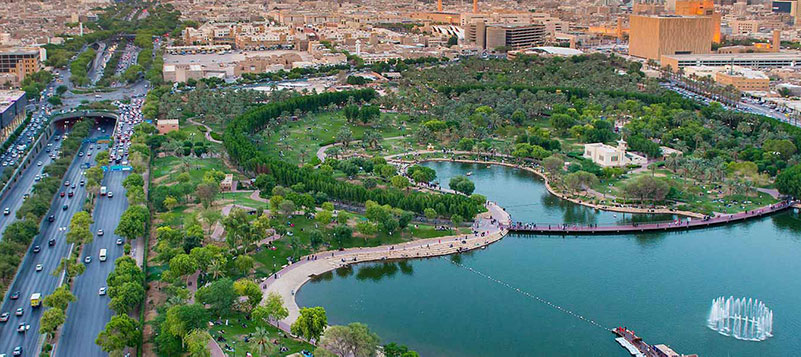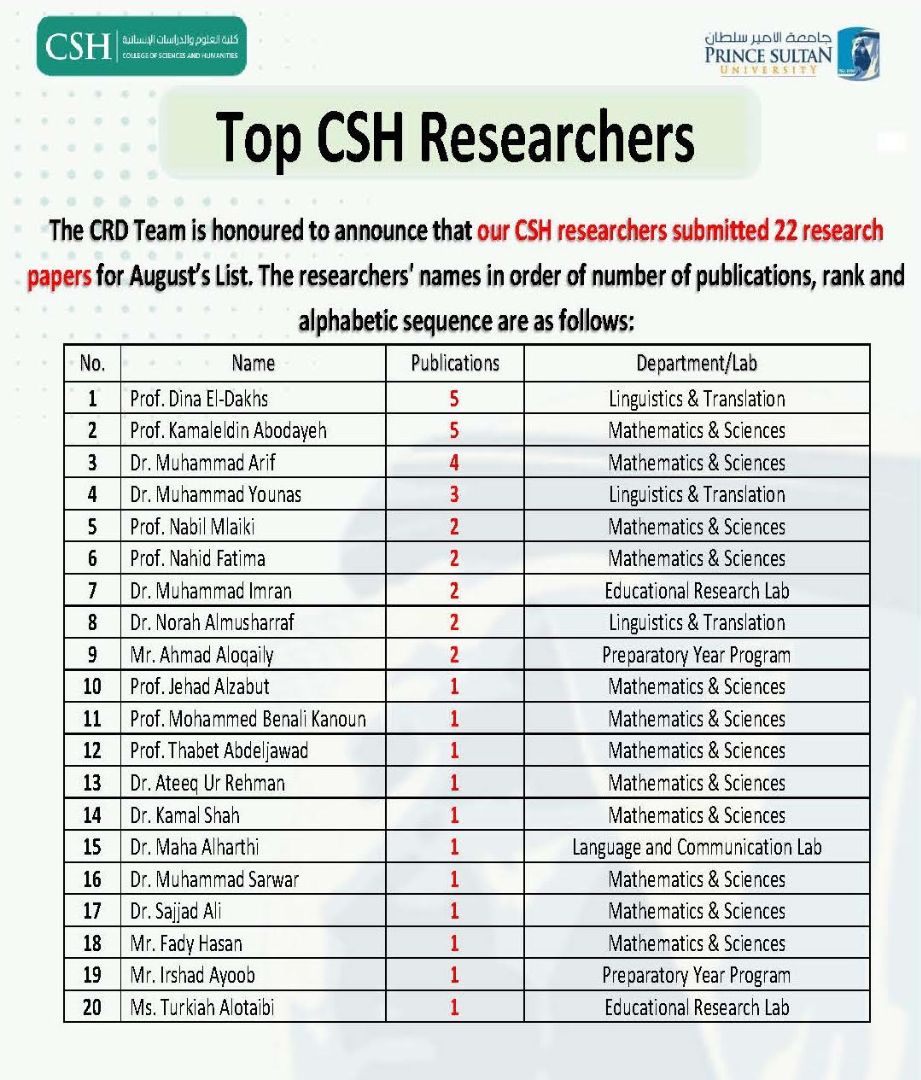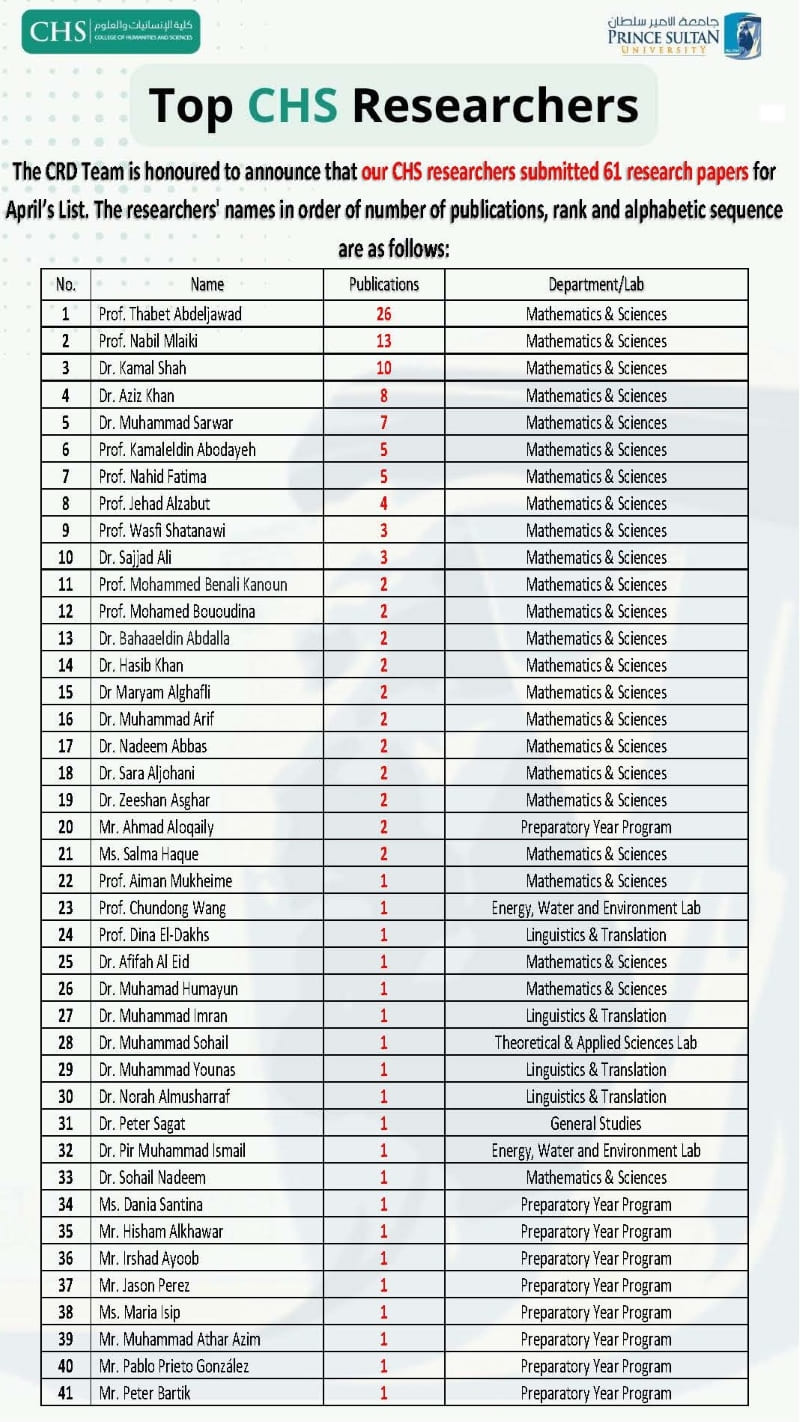SDG 14: Life Below Water
Sustainable Development Goal 14 focuses on conserving and sustainably using the oceans, seas, and marine resources for sustainable development. PSU has contributed to and has reported on SDG 14 through various activities and initiatives.
Research and Data Collection:
Researchers at PSU have conducted research related to marine life, sustainable fisheries, ocean health, and other relevant topics and have collected data on the state of local marine ecosystems and the impact of human activities. Following are some of the published research papers from PSU authors on SDG 14.
- Natasha, Khan, A., Rahman, U. U., Sadaf, Yaseen, M., Abumousa, R. A., ... & Humayun, M. (2024). Effective Removal of Nile Blue Dye from Wastewater using Silver-Decorated Reduced Graphene Oxide. ACS omega, 9(17), 19461-19480.
- Yesilay, G., Dos Santos, O. A. L., Hazeem, L. J., Backx, B. P., Kamel, A. H., & Bououdina, M. (2023). Impact of pathogenic bacterial communities present in wastewater on aquatic organisms: application of nanomaterials for the removal of these pathogens. Aquatic Toxicology, 261, 106620.
- Wali Muhammad, Sajjad Hussain, Abbas Khan, Hammad Khan, Nadeem Khan, Saad Ullah Khan, Sajjad Ali, Mohamed Bououdina, Muhammad Humayun," Novel magnetite/persulphate/ozone hybrid system for catalytic degradation/ozonation of sunset yellow dye from wastewater," in Taylor and Francis Ltd., Apr-2024, doi: 10.1080/20550324.2024.2335694
- Yaseen, M., Khan, A., Humayun, M., Bibi, S., Farooq, S., Bououdina, M., & Ahmad, S. (2024). Fabrication and characterization of CuO–SiO2/PVA polymer nanocomposite for effective wastewater treatment and prospective biological applications. Green Chemistry Letters and Reviews, 17(1), 2321251.
- Hai, T., Chaturvedi, R., Marjan, R. K., Almujibah, H., Van Thuong, T., Soliman, N. F., & El-Shafai, W. (2024). Tri-objective optimization of electricity, fresh water, and hydrogen production in a biomass-driven trigeneration plant: Thermoeconomic and environmental evaluation. Energy, 294, 130627.
- Hai, T., Goyal, V., Aminian, S., Almujibah, H., Van Thuong, T., Soliman, N. F., & El-Shafai, W. (2024). Developing and optimizing a new cogeneration cycle to produce hydrogen from seawater. Process Safety and Environmental Protection, 184, 1525-1539.
Educational Programs:
Following are a few of the educational programs related to environmental conservation and sustainable management of water.
CEE 447 Groundwater Engineering
Credits: 3 (3,0,0) Prerequisite: CEE 341

Fundamental science of hydrogeology, the study of the distribution and movement of water through geologic formations, i.e. soil, sediments, and rocks. The mathematical models of fluid flow in porous media and methods for solving these equations (e.g., analytical, numerical, and statistical approaches). Practical groundwater engineering problems: characterizing the subsurface using aquifer tests, transport and remediation of contaminants, and innovations in groundwater management, as time permits.
Read FullCEE 442 Environmental Management
Credits: 3 (3,0,0) Prerequisite: Senior Level Standing
This course surveys the scientific principles of environmental issues and environmental management practices, with attention to the health of both humans and the ecosystem.

Fundamental and emerging topics related to air and water pollution, water use and management, aquatic ecosystems, energy and climate change, biodiversity, toxic substances in the environment, solid waste management, and regulatory strategies for risk assessment and environmental management are examined. The course will critically examine contemporary thinking on these environmental themes including: sustainable use practices, political-ecology, decentralized environmental management, and community-based approaches, social learning, and regional and urban planning.
Read Full







